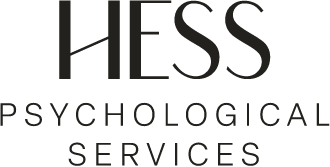Locations We Serve
At Hess Psychological Services, we provide comprehensive mental health support across multiple specialized areas. Our practice offers expert care for individuals experiencing anxiety, depression, perinatal mental health disorders, couples therapy, pediatric mental health, substance abuse, ADHD evaluations, and . We are dedicated to creating a collaborative, trusting, and judgment-free environment where clients can navigate personal challenges, heal from past hurts, manage current stressors, and work towards their future goals. Whether you are struggling with emotional difficulties, relationship issues, developmental challenges, or seeking support during significant life transitions, our compassionate therapists are committed to providing evidence-based, holistic interventions tailored to your unique needs.
Our Therapists
Providing a compassionate and non-judgmental space for self-reflection and personal growth.
MEET OUR THERAPISTSTELEHEALTH




